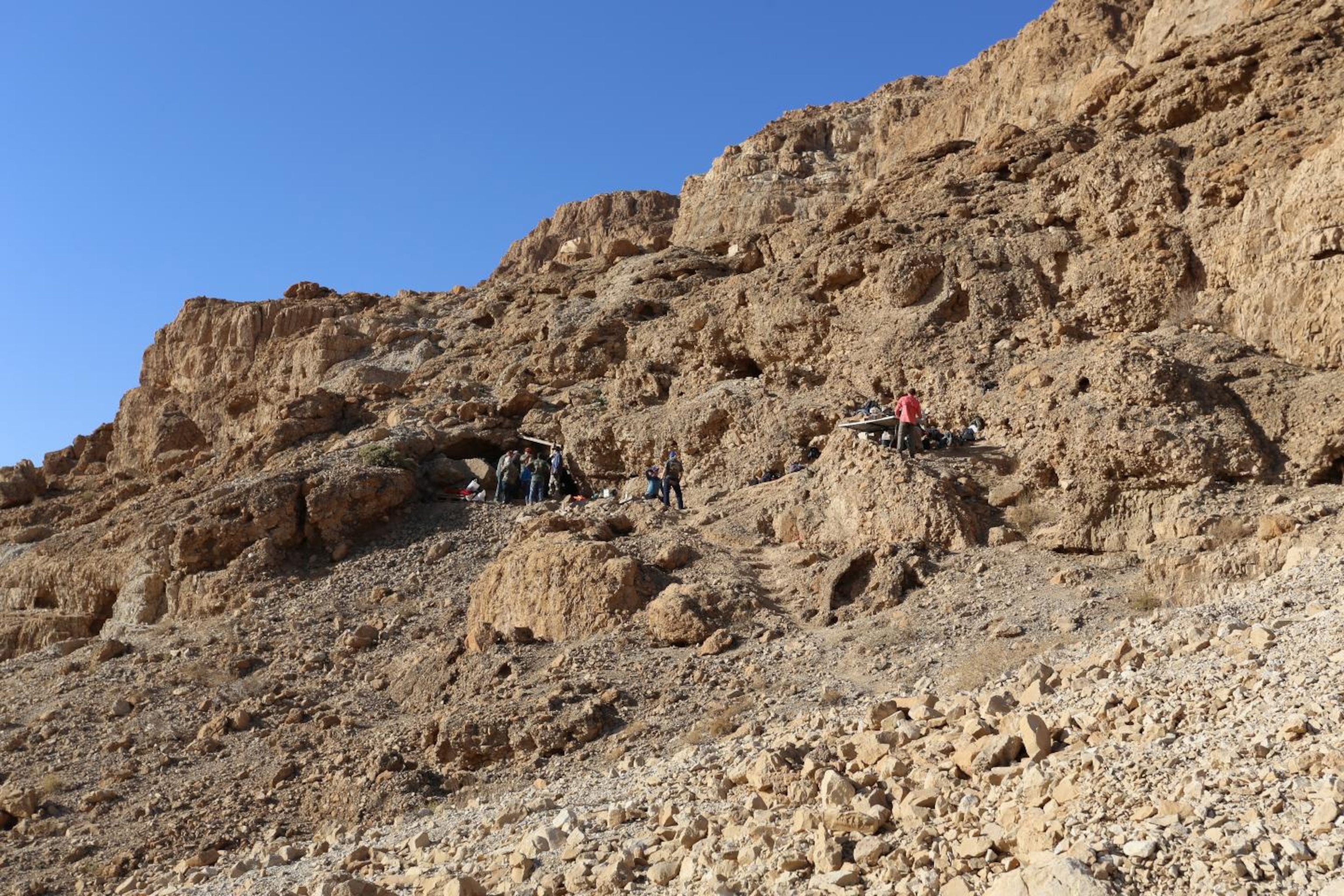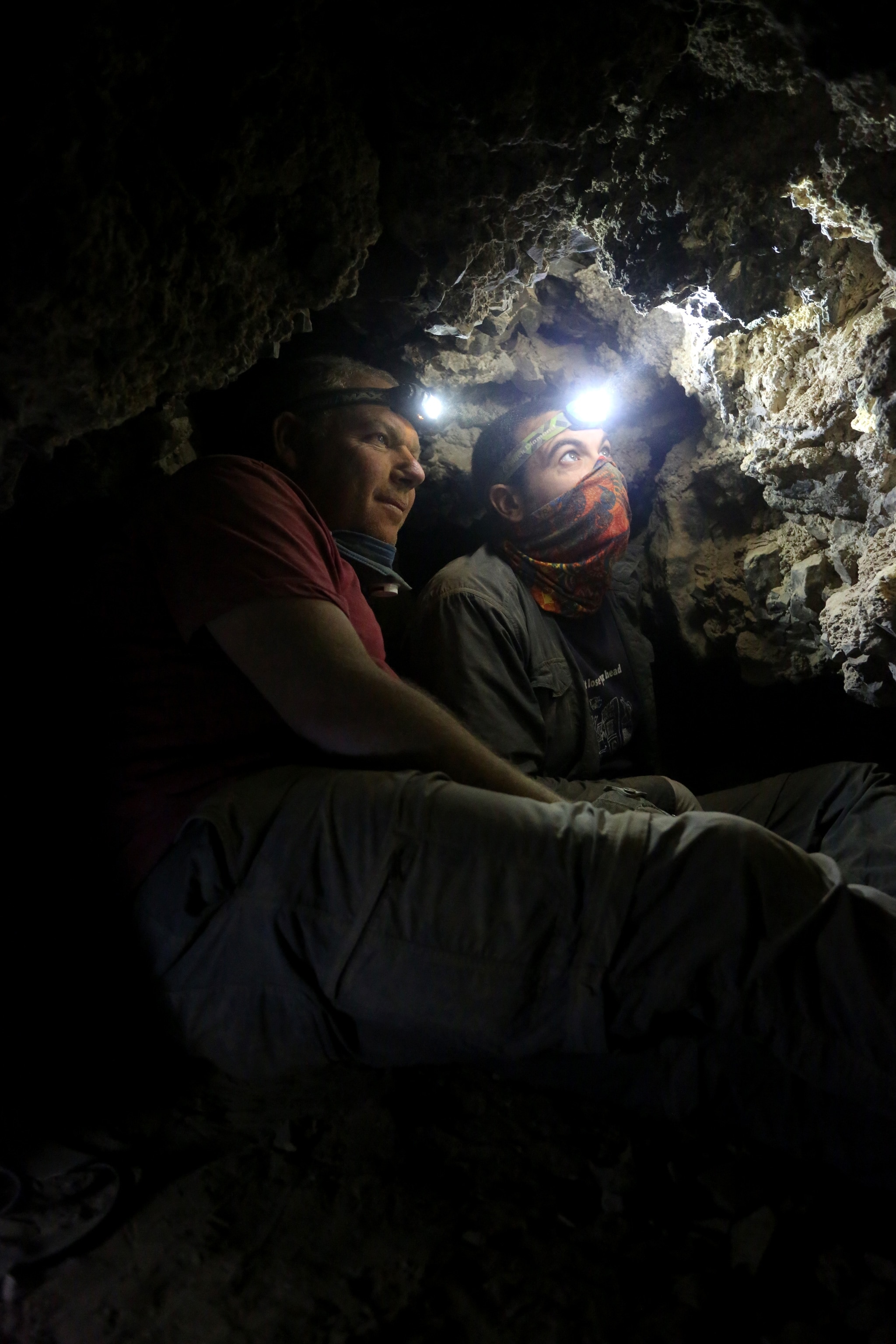
New Dead Sea Scroll Find May Help Detect Forgeries
Looters plundered the cave decades ago. But archaeologists are thrilled by what they left behind. Here’s why.
The discovery of a twelfth cave associated with the famous Dead Sea Scrolls may arm scholars with new clues to deter looters and detect modern forgeries of the ancient documents.
Earlier this week archaeologists announced the discovery of the cave—the first scroll site found since 1956—and revealed the results of recent excavations. The Israeli team found numerous storage jars that had been hidden in niches cut into the cave walls, but all were broken and their contents removed.
Some items were left behind, however, including leather scroll ties, textiles for wrapping scrolls, and a pair of rusty pickaxes from the 1950s—telltale signs that the cave had once harbored a collection of scrolls stored in clay jars, but looters had made off with the documents decades ago.
“The findings indicate beyond any doubt that the cave contained scrolls that were stolen,” said Hebrew University archaeologist and excavation director Oren Gutfeld.
The team also found pieces of parchment with no writing on it. Such material has become a hot commodity, with scraps of ancient parchment commanding high prices, according to Randall Price, an archaeologist at Liberty University who collaborated on the project. Much of the material is supplied by looters, who in recent years have been aggressively targeting the Dead Sea caves.
The Israel Antiquities Authority (IAA) has apprehended a growing number of artifact hunters attempting to enter the caves, usually under cover of night, Price said. The increase in illegal digging prompted the IAA to launch Operation Scroll, a renewed effort to locate and systematically explore the region’s caves.

The goal is to have “controlled archaeological excavations in possible scroll caves to prevent this knowledge from being lost to history,” Price said, adding that there’s probably another 50 sites that merit investigating in the near future.
Buyer Beware
The Dead Sea scrolls are often called the greatest archaeological find of the 20th century. At more than 2,000 years old, they include the earliest surviving manuscripts of the Hebrew Bible. Bedouin shepherds discovered the first scrolls in a cave near Khirbet Qumran on the northwest shore of the Dead Sea in late 1946 or early 1947. Since then searchers have found scrolls in 10 other caves. (Also see "Dead Sea Scrolls Mystery Solved?")
Over the past 15 years there has been an increase in the number of Dead Sea Scroll fragments offered for sale on the private art market, said Lawrence Schiffman, professor of Hebrew and Judaic studies at New York University and an authority on the scrolls. “Many of the fragments that entered the market since 2002 appear to be forged.”
Some forgeries have expert lettering on parchment as old as the actual scrolls themselves, Schiffman said. “It’s possible some of this is coming from caves where people were able to locate ancient blank material to write on.”

The blank parchment that archaeologists recently found may shed light on how high quality forgeries could be making their way to the market. And because it was recovered by scientifically rigorous methods, the parchment will help experts assess fragments that show up for sale.
“When things turn up, you just don’t know where they came from—you’re relying on the testimony of the seller,” Price said. “We need these controlled excavations so that when something’s found, there’s no doubt of its origins and authenticity.”
New Revelations to Come?
The prospect of discovering more scrolls has already spawned breathless speculation and headlines, but Schiffman isn’t expecting any fodder for the next novel by Dan Brown, author of The Da Vinci Code.
“We’re not going to find the diary of the three wise men,” he quipped. “We might find new books that help us understand passages of the New Testament or Talmudic literature. But the notion that a bombshell text will come and overturn our picture of ancient religion at the turn of the era really isn’t a realistic one.”

Neither is it realistic, according to Schiffman, to expect Israel to heed the protests of Palestinians who argue that the Dead Sea Scrolls are rightfully part of their cultural patrimony.
The effort to recover additional scrolls is taking place in the West Bank, which Palestinians—and the United Nations—consider occupied territory. Israel signed a U.N. convention in 1954 that forbids excavation and removal of ''cultural artifacts'' by foreign occupiers.
Even so, "There isn't any Israeli government that’s about to surrender the most ancient copies of the Bible and Jewish literature to someone else,” Schiffman said. “Plain and simple, it isn’t happening.”




